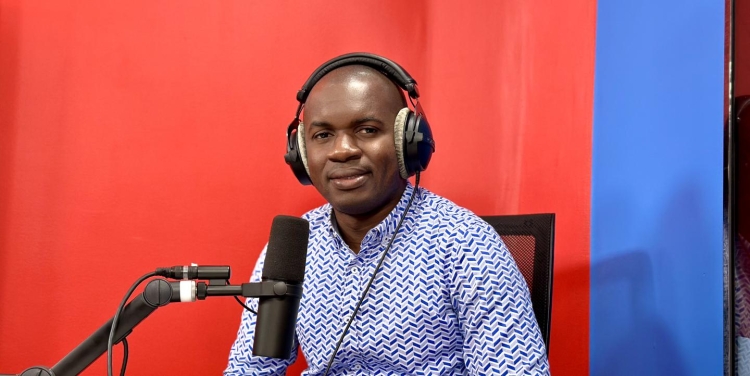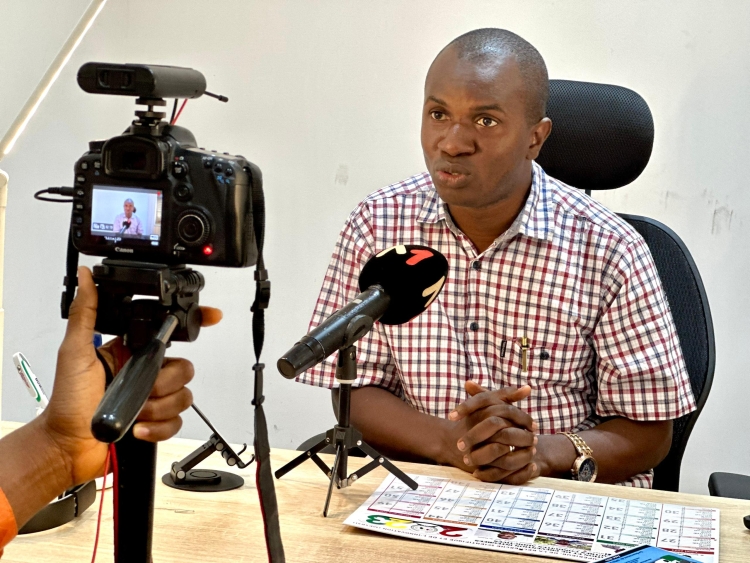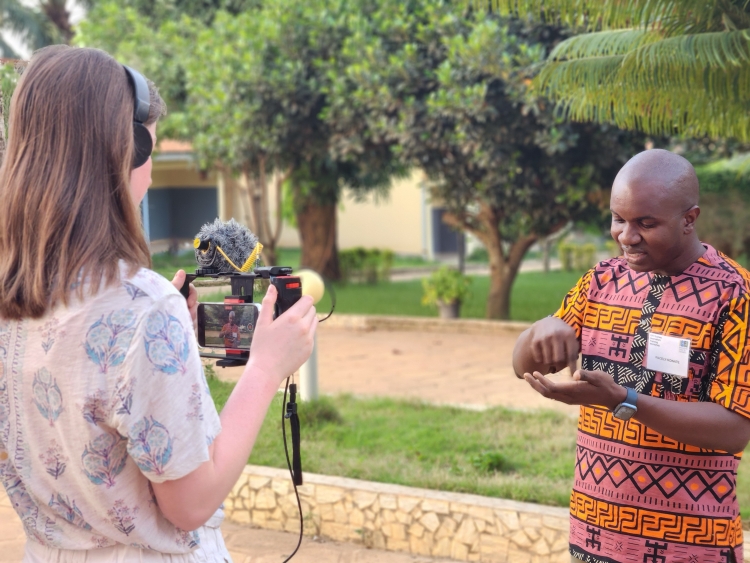Guinean journalist Facely Konaté started reporting at the young age of 23. He credits his father, a radio enthusiast, for instilling in him a passion for journalism.
Growing up in N'Zérékoré, a town in a forested region about a two-hour flight from the capital city of Conakry, his father would provide him with a radio receiver so that he could listen to the news and report back to him. At first, Konaté found this task challenging, but he got used to it: “I went to bed and woke up with my little radio.”
Konaté has worked in journalism for a decade now, during which time he has become an award-winning reporter. In 2020, Konaté was a finalist for Radio France Internationale’s Ghislaine Duport and Claude Verlon prize. Earlier this year, he won the Prize for Excellence in Journalism in Guinea, awarded by ICFJ and the U.S. Embassy in Guinea.
He has also come under pressure for his investigations. In January, he was the target of an attempted burglary at his residence, following his collaboration with a French journalist to expose a corruption scandal in Guinea's oil sector. He suspects the incident was politically motivated, due to his reporting.
Concerned for his safety, Konaté fled Guinea for Côte d'Ivoire, where he stayed for almost two months. He returned in late March only after the director of the National Petroleum Agency (SONAP), Amadou Doumbouya – the subject of his investigation – was fired from his post.
Konaté never stopped reporting, however. "I am convinced that I still have a significant contribution to make in this sector in my country,” he said.
I spoke with Konaté about his career, his dedication to journalism and his positive outlook on the field despite the threats he has faced.

What type of journalism do you practice?
I contribute in my own way to the promotion of democracy and quality journalism in my country. I’m working to give a voice to the voiceless, communicate concealed facts, demystify false information, hold those in power accountable, and reveal corruption scandals such as the recent case of SONAP and the acquisition of a villa in Texas by its former director general, Amadou Doumbouya.
Additionally, I strive to expose and denounce human rights violations or social injustices. In my opinion, this is the best achievement. My mission as a journalist is to continue to provide information, to raise awareness and to build a truly free and independent press.
What future do you envision for journalism?
The field of journalism is in a state of constant evolution, shaped by technological advancements and societal changes. This development has significant consequences, including the proliferation of false information and manipulation that erodes the credibility of traditional media, the collapse of traditional economic models and the evolution of information consumption habits.
The polarization of social media, which favors the creation of “filter bubbles” that reinforce pre-existing opinions, and the development of artificial intelligence are also factors to take into consideration.
Despite these challenges, journalism remains essential because society needs reliable and quality information. We just have to adapt to the current environment by innovating while keeping in mind our fundamental missions: to inform, analyze and give meaning to current events.

The defense of press freedom is a fight you have been engaged in. Why is this important to you?
Today, in Guinea and elsewhere around the world, press freedom is seriously threatened. You just have to look at the 2024 press freedom map from Reporters Without Borders.
In Guinea in particular, journalists regularly face censorship, arrests and even violence. This climate of repression led me to lead this noble fight.
In 2019, I co-founded the Association of Media Professionals of Forested Guinea (APROMED-GF), and since June 2023 this fight has also been carried out at the international level with my election to the board of directors of Reporters Without Borders.
For me, defending press freedom means strengthening democracy and guaranteeing the right of citizens to be informed in a free and impartial manner. The fight continues.
How has IJNet helped you in your career?
IJNet is an extremely useful tool for finding opportunities, scholarships and awards to apply to. My participation, for example, in the “Claude Verlon and Ghislaine Dupont” Prize from Radio France Internationale was thanks to IJNet, and I was among the 10 finalists in the “Young Reporters” category.
In March 2024, I was honored with the “Prize of Excellence for Journalism in Guinea” in the “Editorial Writing” category from ICFJ. I have also recently received an ICFJ Guinea training program reporting grant, all thanks to this platform.
I often recommend IJNet during my training with young journalists and I continue to benefit from it. It is one of the best platforms to support journalists in their personal development. It is essential to maintain and support this platform.
You are a member of the IJNet French Crisis Reporting Forum. How have you benefited from your involvement?
[In 2020] I saw a post on “How to Start a Good Podcast," which piqued my interest. Consequently, I attended the training session which […] was led by Abèdjè Sinatou Saka and moderated by the director of the Forum, Kossi Elom Balao.
I subscribe to the Forum newsletter and never miss an update. I even hosted webinars with the Forum to share my experience covering the COVID-19 pandemic.
What fascinates me about the Forum is the relevance and diversity of the themes and guests. I learn a lot through different webinars hosted by the Forum. But what’s even more interesting is networking. Today, I have friends everywhere thanks to this group of more than 3,500 members.

What is your biggest fear as a journalist?
When we decide to reveal concealed facts and denounce human rights violations and social injustices, it is obvious that we expose ourselves to risks. Threats and intimidation are a part of our daily lives.
In the current context of restrictions on individual and collective freedoms, closure of independent media outlets, kidnappings and forced disappearances in Guinea, fear is omnipresent. Every day we tell ourselves this could be our last. I have prepared myself psychologically for this eventuality.
What advice would you give fellow journalists?
In the current context of digital transformation which is disrupting the media sector, I urge journalists to cultivate an insatiable curiosity and engage in continuous learning. The rapid evolution of our sector requires constant updating of knowledge to remain relevant and competitive.
Furthermore, specialization has become essential to develop in-depth expertise in a specific field and stand out from the competition. I would also advise other journalists to be patient and professional. Upholding ethics and separating right from wrong is essential, as is developing a strong network.
Journalism is an exciting but demanding profession. With curiosity, hard work and continuous training, it is possible to achieve your goals.